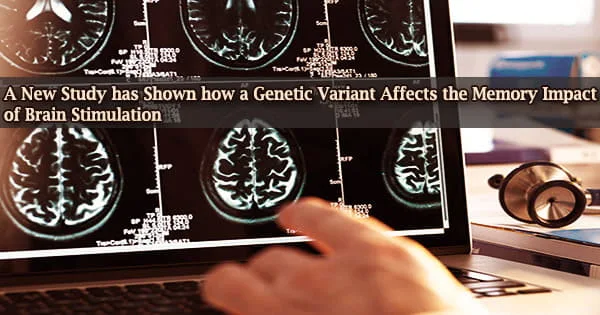The brain-derived neurotrophic factor (BDNF) gene has been linked to numerous memory and brain plasticity processes. According to a new study, people with the Val/Val genetic variant for the BDNF gene have an easier time changing their cognitive activity with transcranial magnetic stimulation (TMS).
The study was led by Kilian Abellaneda, a member of the Barcelona Brain Stimulation Lab (BBSLab), and coordinated by David Bartrés-Faz, a professor at the Faculty of Medicine and Health Sciences and a researcher at the Universitat de Barcelona’s Institute of Neurosciences (UBNeuro), as well as a member of the August Pi I Sunyer Biomedical Research Institute (IDIBAPS).
Teams from the Hospital Clnic de Barcelona, the Guttmann Institute, the Harvard School of Medicine (United States), and the universities of Siena, Trento, and La Sapienza (Italy), among others, are participating in the project.
TMS is a non-invasive method that aids in the understanding of brain activity and has a wide range of applications in cognitive processes and neuropsychological rehabilitation.
We believe the obtained data in this study provides relevant information on the neurobiological mechanisms related to the neuroplasticity processes that explain the individual differences regarding the effects of stimulation at a cognitive level. Therefore, the new results could be of great interest in order to design future interventions that prioritize the highest level of customization.
Kilian Abellaneda
Using functional neuroimaging techniques, the team was able to confirm that under the effects of neurostimulation, the Val/Val allele variant carriers showed increased brain activity in memory-related processes in brain regions contralateral to stimulation, a feature that could be related to functional compensation brain processes.
“We believe the obtained data in this study provides relevant information on the neurobiological mechanisms related to the neuroplasticity processes that explain the individual differences regarding the effects of stimulation at a cognitive level. Therefore, the new results could be of great interest in order to design future interventions that prioritize the highest level of customization,” notes Kilian Abellaneda, member of the Department of Medicine of the UB and IDIBAPS.
This research is part of the Pharmacog project, which is a European collaboration in the field of neurodegenerative illnesses.
One of the goals of this research is to create experimental platforms for manipulating cognitive functions in humans and the underlying brain processes in a controlled manner, with the goal of using these platforms to explore the effects of future medications in the early phases of development.





